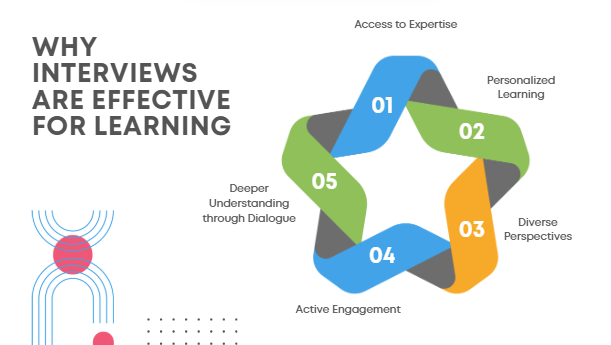
Interviews are often associated with journalism, job applications, or research, but they are also an incredibly effective tool for learning. Whether in formal educational settings or informal knowledge-seeking, interviews offer a unique, dynamic way to gain deeper insights, practical knowledge, and diverse perspectives.
By asking questions and engaging directly with experts, peers, or individuals with unique experiences, interviews allow learners to dive beyond the surface of textbooks and lectures, providing an interactive platform for discovery.
Why Interviews Are Effective for Learning
Interviews stand out as a learning tool because they combine active listening, critical thinking, and engagement in a way that traditional learning methods often do not. Here are several reasons why interviews are so effective:
1. Access to Expertise: Interviews provide direct access to experts, thought leaders, or individuals with specialized knowledge. Engaging with these experts allows learners to ask specific questions, clarify doubts, and receive real-world advice that textbooks or articles may not cover.
2. Personalized Learning: Unlike passive learning methods, interviews allow learners to ask questions tailored to their own needs, interests, and gaps in understanding. This personal interaction ensures that the learning experience is relevant and immediately applicable to the learner’s goals.

3. Diverse Perspectives: Interviews expose learners to a variety of perspectives, especially when interviewing people from different fields, cultures, or backgrounds. This diversity enriches understanding and encourages learners to think critically and appreciate multiple viewpoints on a topic.
4. Active Engagement: The interactive nature of an interview requires active participation. The learner must not only prepare questions but also listen attentively and think on their feet, fostering critical thinking and problem-solving skills during the conversation.
5. Deeper Understanding through Dialogue: Conversations often lead to nuanced discussions that are absent in written material. The back-and-forth nature of interviews helps uncover deeper insights, as interviewees can expand on answers, clarify points, and introduce new ideas based on the interviewer’s curiosity.




Comments are closed